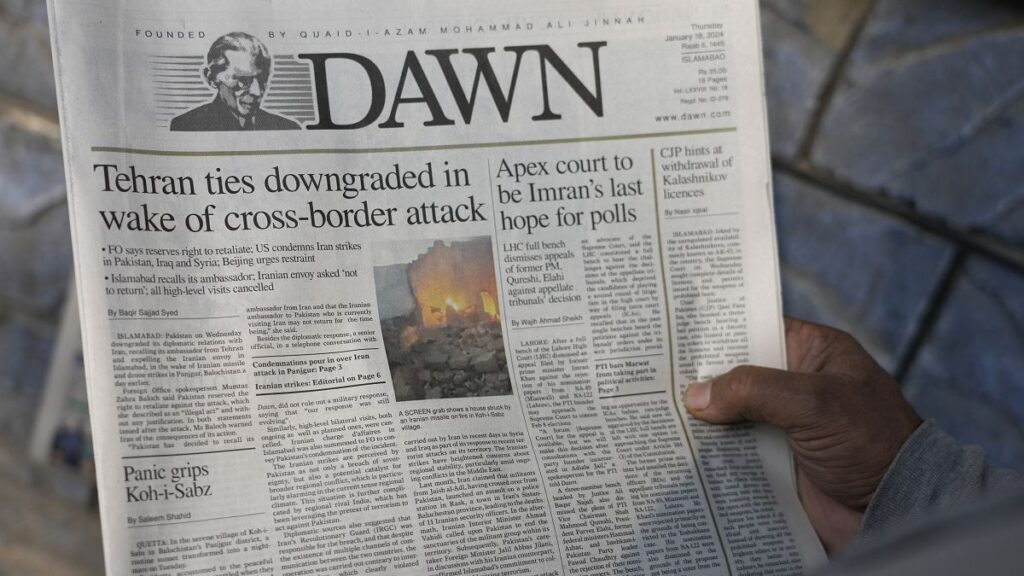At least nine people were killed in southeastern Iran following strikes by the Pakistani air force early Thursday, two days after an attack by the Islamic Republic on its neighbor’s territory.
The Pakistani Air Force carried out several strikes in Iran’s Sistan and Baluchistan province early Thursday. According to Iranian television, three women and four children were killed.
The Pakistani Ministry of Foreign Affairs mentions via a press release “ a series of highly coordinated and specifically targeted precision military strikes (on the base) credible intelligence indicating imminent large-scale terrorist activities », specifying that the targets are of Pakistani origin. “ This action is a manifestation of Pakistan’s unwavering determination to protect and defend its national security against all threats. “.
Heightened tensions
These attacks follow those carried out by the Islamic Republic of Iran on Tuesday on Pakistani soil which killed two children in the province of Baluchistan, in the southwest of the country. Iran also carried out airstrikes on Monday in Iraq and Syria. Strikes which followed a suicide attack claimed by the Islamic State organization which killed more than 90 people earlier this month.
The Pakistani response further exacerbates tensions between Iran and Pakistan, a country with nuclear weapons. Several insurgent groups operate in Iran and Pakistan, including the Sunni separatist group Jaish al-Adl, which was targeted by Tehran in its own strike. They all have the common goal of creating an independent Balochistan for the areas where the Baloch live in Afghanistan, Iran and Pakistan.
Pakistan’s Balochistan province, as well as neighboring Iran’s Sistan and Baluchestan province, have faced a low-intensity Baloch nationalist insurgency for more than two decades.
HalVash, a Baloch advocacy group, released images online that appear to show remnants of munitions used in the attack. He said several houses were hit in Saravan. It released videos showing a mud-walled building destroyed and smoke rising above the attack in the immediate aftermath.
Risk of escalation
Iranian state television, quoting an unnamed official after the strike, said Tehran strongly condemned the attack and “demanded an immediate explanation” from Pakistan.
Many observers fear an escalation of tensions, as the Iranian army begins this Thursday an annual air defense exercise from the port of Chabahar, near Pakistan, crossing the south of the country to Iraq. This exercise will include live firing of aircraft, drones and air defense systems.
Iran and Pakistan share a loosely controlled 900-kilometer border, where smugglers and militants pass easily between the two countries. The road is also essential for the export of opium from Afghanistan.
For both Iran and Pakistan, these cross-border attacks raise the question of the readiness of their own armies, in particular their radars and air defense systems.
For Pakistan, these systems are essential as tensions still remain low with its nuclear-armed rival India. Their equipment has long been deployed along the border, rather than on the border with Iran. As for Iran, it is counting on these systems to protect itself against possible strikes from its main enemy, the United States.
China, an essential partner of both countries, called for restraint. Beijing is a leading regional player and has a major New Silk Roads development project in the port of Gwadar, in Pakistan’s Balochistan province.

